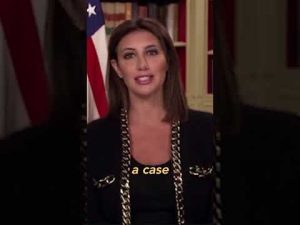In recent discussions about the stability of democratic systems around the world, the effectiveness of checks and balances has emerged as a critical topic. The framers of the U.S. Constitution established a sophisticated mechanism designed to guard against government overreach and corruption. However, as time progresses, concerns about the efficiency and impartiality of these safeguards have come to the forefront. Impeachment, once a bipartisan tool for accountability, has seen its potency diluted amidst rising partisanship and the centralization of power in the executive branch.
The impeachment process was designed as a means to remove corrupt officials, ensuring that governmental positions could not be ensconced in a bubble of protection. Alexandre Hamilton, one of the primary architects of American governance, posited that the Senate would serve as the ideal venue for such high-stakes trials — a body sufficiently insulated from the whims of public sentiment and political factions. All citizens should be aware that the framers sought to avoid the pitfalls observed in British governance by establishing this nuanced system. However, the passage of time has transformed this once vital process into a rarely employed and often politically charged act.
The question of how to police corruption has since become complicated by the emergence of so-called independent branches of government. Many countries, including the U.S., have shifted the responsibility of law enforcement and corruption oversight away from elected representatives toward unelected bureaucracies. While this move aimed to create a more objective system, it bears a significant risk: these branches can and often do become politicized. They’re most certainly not immune to bias, as evidenced by the frequent allegations of weaponization that surface in political debates.
When the value of impeachment is undermined, either through non-usage or bitter party-line divides, the window for addressing corruption narrows considerably. In a hypothetical situation, if a significant faction of a political party feels threatened by the rise of a member from an opposing party, they may lean heavily on these independent legal institutions to take action. This renders the relationship between the executive and judicial branches fragile and fraught with tension. Every party then risks elevating minor grievances into major legal battles, further entrenching partisanship instead of fostering collaboration.
This scenario plays out not only in the United States but across several democracies globally, from Israel to Brazil. As political figures like Donald Trump or Benjamin Netanyahu face accusations largely viewed as politically driven, the efficacy of these independent judicial bodies comes under fire. Each political maneuver can be labeled as either a fight for democracy or an assault on it, depending entirely on one’s political perspective. This situation culminates in a dangerous cycle where the institutions that were meant to protect democratic values become battlegrounds for partisan warfare, leaving the public to wonder whether true democracy is at risk of being undone.
Ultimately, the solution lies in rekindling a balance between the branches of government that genuinely reflects the will of the people. This involves reevaluating the role of impeachment, restoring faith in elected officials, and fostering a government that functions without the constant threat of being manipulated for partisan ends. If this trend of allowing corruption oversight to fall solely into the hands of unelected officials continues, democratic nations may find themselves in increasingly perilous waters. To avoid the pitfalls of authoritarianism, it is crucial to return to the principles that inspired the formation of the United States — checks and balances that actually check and balance, instead of merely becoming tools for partisan gain.



